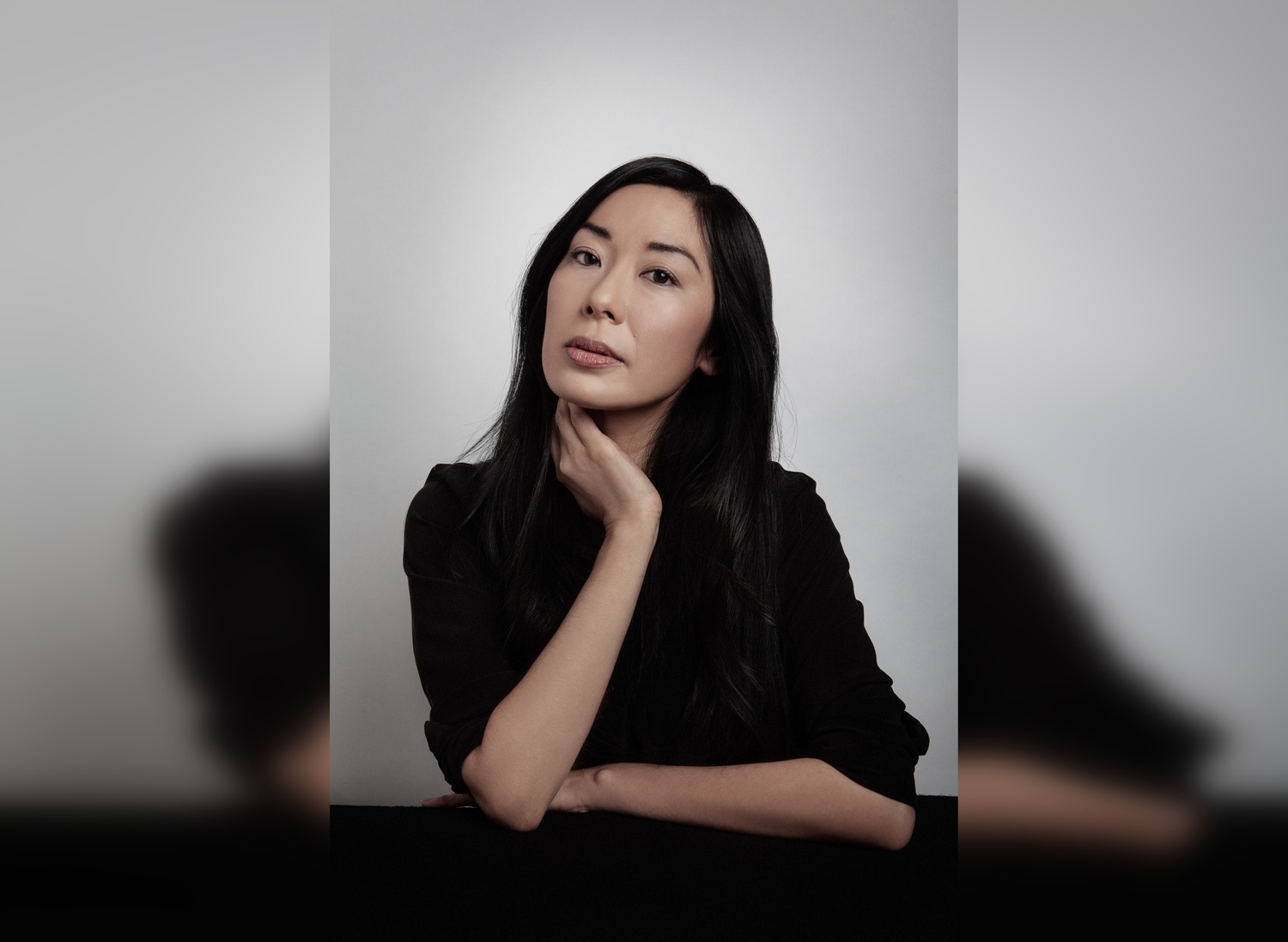
News
Summers Will Not Finish Semester of Teaching as Harvard Investigates Epstein Ties

News
Harvard College Students Report Favoring Divestment from Israel in HUA Survey

News
‘He Should Resign’: Harvard Undergrads Take Hard Line Against Summers Over Epstein Scandal

News
Harvard To Launch New Investigation Into Epstein’s Ties to Summers, Other University Affiliates

News
Harvard Students To Vote on Divestment From Israel in Inaugural HUA Election Survey
‘Conscious of Language and Power’: Katie Kitamura on the Physical Life of Words

Katie Kitamura has had quite the year. Her fifth novel, “Audition,” published in April of 2025, became an instant national bestseller, was one of Barack Obama’s favorite books of the summer, and is currently shortlisted for the 2025 Booker Prize. “Audition” will be turned into a film, with Charles Melton and Lucy Liu as leads and Lulu Wang set to direct.
Yet, despite her success, Kitamura notes that her road to becoming an author has been more of a “winding path,” as she began writing fiction while completing her PhD in American Literature at the University of London.
“I have a lot of friends and colleagues who started writing when they were quite young,” Kitamura said in an interview with The Crimson. “It took me longer, and I think, even now, I would say that I’m a reader before I’m a writer.”
Kitamura’s identity as a reader has shaped how she approaches fiction. In her work, she translates the perturbations of thought and movement into sharp yet haunting prose.
How New York Became a Main Character: On Arrival and Hyper-Attunement
“Audition” begins with a moment of conflict. The main character, an actress practicing for her upcoming premiere, meets with a man young enough to be her son. Identity and motherhood are tested as she starts reframing her life.
Similarly, Kitamura’s daily writing routine is ever-changing. In an ideal world, she would be writing every morning. Yet, writing from “the middle of [her] life,” what’s important for Kitamura is writing past the gaps in time.
“I think, so long as you return to your writing practice, that makes you a writer,” said Kitamura.
When it comes to leaving and returning, Kitamura’s life has been marked by travel. A child of immigrants, she grew up in a dual language household. Her parents moved back to Japan when she was a teenager, where she herself spent long stretches of her childhood. After graduating from Princeton University in 1999, she spent time in London before moving to New York.
“I’ve always had the sense that I had a foot in many different places around the world,” Kitamura said.
Her work has also been marked by jumps across space. Her first book, “Japanese for Travellers: A Journey Through Modern Japan,” is a travel memoir. In her third novel, “A Separation,” a translator travels to Greece to search for her missing husband. In “Intimacies,” Kitamura’s most recent work before “Audition,” an interpreter travels to The Hague to escape New York and work at the International Court. “Audition” is her first novel set in the United States.
“I think one of the reasons that I set the novel in New York is because in the past, I’ve often used location as a way to explore themes of alienation and disorientation. My character is often arriving into a place,” said Kitamura. “They’re not from that place. They’ve not lived in that place for very long. They’re fresh arrivals. And I think something about the hyper-attunement that you achieve when you’re in a new place is interesting to me.”
Space is Defined by Body Language and Quotation Marks
Kitamura trained as a classical ballet dancer early in her life. Later, her brother introduced her to mixed martial arts in Japan. Her first novel, “The Longshot,” follows a mixed martial arts fighter as he prepares for a legendary rematch.
“Every time I write a scene, I really think quite a lot about where the characters are positioned in relation to one another, and how their physical movements, their physical postures, affect the narrative that is unfolded,” Kitamura said.
At the same time, a structured routine of repetition is embedded into the athletic profession. For Kitamura, this discipline is not far from writing.
“The process of writing for me is never that it comes out and it’s done; it’s very iterative,” said Kitamura. “I’m rewriting and rewriting and trying to work my way towards something.”
To the aspiring artist, good writing may seem like the product of an epiphany. But for Kitamura, good writing is the product of rewriting.
“I think most writing happens in editing,” said Kitamura. “70% of it is in the editing for me.”
When writing, Kitamura prefers solitude, even though her words become “porous to the reader.” Her latest novel is both centered around interpretation, and asks to be interpreted.
“[‘Audition’] is a book that I wanted to write so that it would be very much in dialogue with the reader, perhaps more than anything else I’ve written,” Kitamura said.
It is often taken for granted that dialogue will be confined inside quotation marks. Kitamura’s last three novels, including “Audition,” don’t have quotation marks. They can be almost read as a triptych, a single stream of thoughts and conversations sieved by the consciousness of the main narrator. For Kitamura, quotation marks have become a “visual demarcation” that doesn’t quite feel right.
They are also told from the perspectives of unnamed female narrators. Writing reserved main characters with little backstory is a gamble. But by submerging readers in her narrator’s interpretations, Kitamura swims to the surface.
“When I read a first person narration, obviously everything is filtered through the mind of a character, but when I see something in quotation marks, I often take that to be a little bit more external and objective and verifiable in some way,” Kitamura said.
Kitamura’s writing is often experimental and abstract. Her novels deal with themes that resist definition. However, themes aren’t part of her draft outlines.
“I very rarely write with a theme in mind when I start, usually,” said Kitamura.
Conversely, articulating the abstract begins in locating a tangible dilemma. Kitamura’s work pinpoints the moment of conflict, and amplifies it.
“In my experience, it’s really the situation and the character that generates the ideas and the themes, rather than the other way around, because it’s quite hard to start out with an abstract idea and then try to force it into a character or voice or narrative,” Kitamura said.
Does an Author ‘Produce’ Writing?
Over the span of 16 years, Kitamura has published five novels, with each receiving critical acclaim. Some might call her pace “efficient” or “productive,” like a machine.
“Something that I do feel for myself is that for a long time I really wrote keeping a daily word count and seeing how many words a day I was producing. And I think I was using words like ‘producing,’” said Kitamura. “And I felt that it was very much caught up in this idea of productivity and efficiency and kind of capitalist industry, in a way.”
Though Kitamura recognizes the importance of discipline and diligence when writing, rewarding quantity over quality doesn’t make for the best creative works.
“[Writing] is a very mysterious and quite mercurial process, and I think over time, I’ve become much more open to that than I was when I started writing,” Kitamura said.
Besides facing external, societal pressures, Kitamura recognizes the doubts and fears that come with the process of writing and becoming a published author.
“I think when I started writing, I was much more preoccupied with retaining the visible markers of advancement in my project, and I think that had less to do with pressure from the publishing industry and much more to do with my own uncertainty about my project and my writing,” said Kitamura.
Psychologically, working on something for several years while not knowing whether it will work out or not is, as Kitamura notes, the most difficult thing.
Alongside her longer books, Kitamura has written short pieces in the form of art criticism for magazines such as “Frieze” and “Contemporary.” Though short-form articles may seem easier to manage, Kitamura reveals a different challenge.
“I’ve really become quite interested in the idea of being tentative in my writing, and finding my way slowly towards something,” said Kitamura. “And of course, when you’re writing through deadlines, it’s the opposite. You have to be quite decisive.”
Language is a Living Beast
In “Intimacies,” the narrator finds herself in a war crimes tribunal, where the two official court languages are both colonial ones, English and French. For Kitamura, the past few books have been a way to develop a “wariness toward the power of language.”
“Language is incredibly powerful, and, as a writer, you can fall into the trap of thinking perhaps that language is primarily a tool to edify and to clarify, but often — just as often — language is used in order to obfuscate and in order to create false meaning,” Kitamura said.
Her work has been translated into 24 languages. Besides the tension of one language, she recognizes the anxiety that arises between multiple, and reads closely into it.
“In terms of the multiplicity of language, I mean, as a whole I’m primarily interested not in what is lost in translation, but what is gained in translation,” said Kitamura. “And I am interested in the accrual of meaning through the way which words pass between multiple languages.”
Kitamura realizes how languages and their specificities can change power dynamics.
“For example, my parents spoke Japanese and English, and my mother always preferred to have an argument with my father in English, because it was an easier language for her to kind of make her argument’s position clear, as opposed to Japanese, because of gender,” Kitamura said.
When a writer starts thinking about language in terms of power, they become “always, always very conscious” of how they use it.
After all, poking at consciousness seems to be a permeating theme in Kitamura’s work and philosophy of writing. From the inherent hierarchy of language to understanding the ruminations of her narrators and how they speak, Kitamura is concerned with investigating how to best represent the internal. One book at a time, she is devising a theory on how to articulate what is undefinable.
—In her column “The Daily Desk,” Erlisa Demneri ’27 focuses on the daily and writing routines of various authors, and how they each view productivity in writing. She can be reached at erlisa.demneri@thecrimson.com.
Want to keep up with breaking news? Subscribe to our email newsletter.

